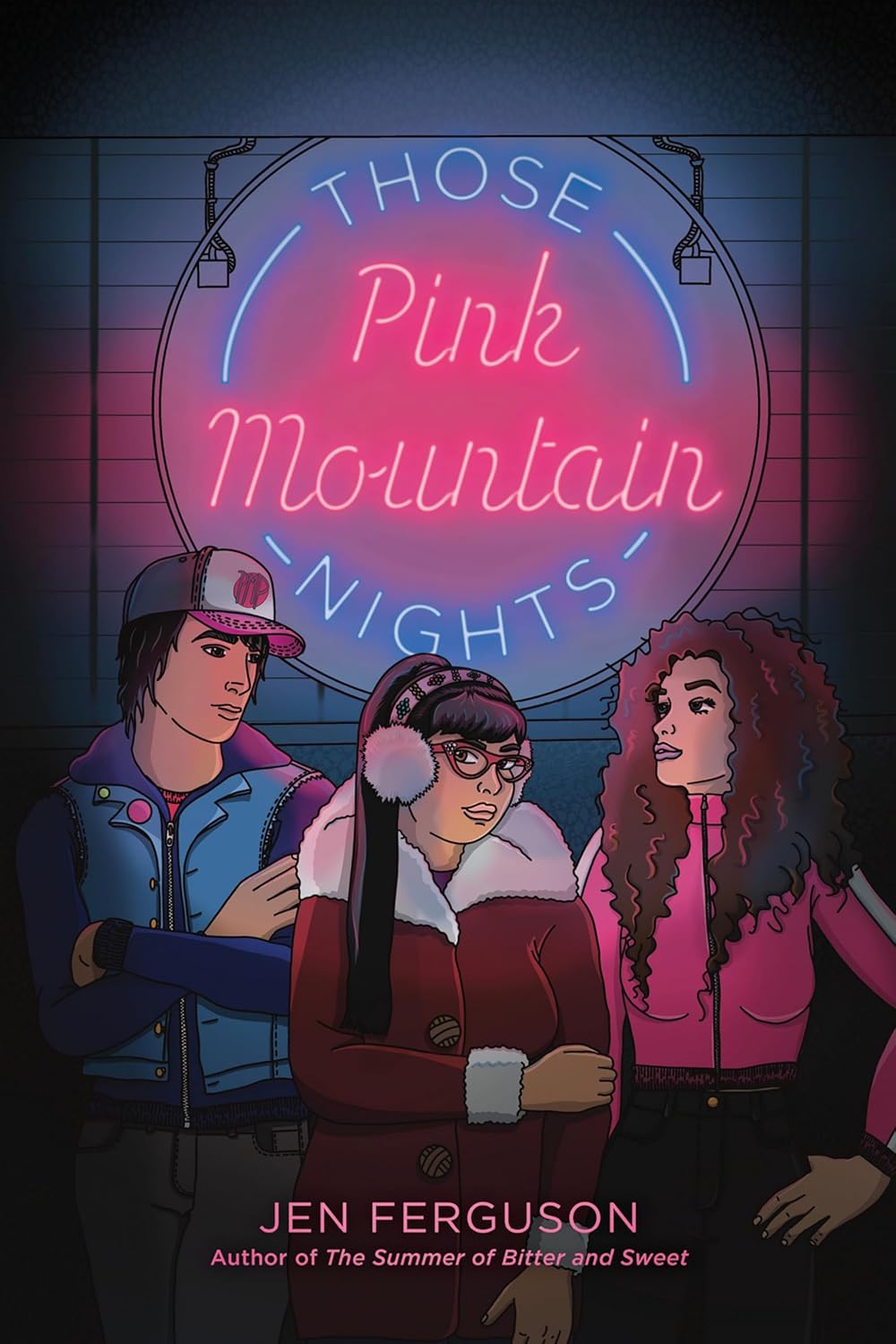Summary | Excerpt | Reading Guide | Reviews | Beyond the Book | Read-Alikes | Genres & Themes | Author Bio

This article relates to Those Pink Mountain Nights
.jpg) The emotional crisis faced by the protagonists of Jen Ferguson's Those Pink Mountain Nights stems from the disappearance of a mother and daughter from a First Nations community in Alberta, Canada. Although the book keeps its focus tight, on the intimate stories of a handful of teens, the characters occasionally reference the larger issue of Indigenous women and girls going missing.
The emotional crisis faced by the protagonists of Jen Ferguson's Those Pink Mountain Nights stems from the disappearance of a mother and daughter from a First Nations community in Alberta, Canada. Although the book keeps its focus tight, on the intimate stories of a handful of teens, the characters occasionally reference the larger issue of Indigenous women and girls going missing.
This is a problem that impacts communities in the United States as well as in Canada. A 2018 survey of 71 U.S. cities by Annita Lucchesi and Abigail Echo-Hawk reported that murder is the third leading cause of death for Native women. That year, 5,712 Indigenous women and girls were reported missing in the United States, but only 116 were logged into the Department of Justice's database, and almost 60% of police departments contacted could not give complete data about the issue. News coverage of these murders and disappearances is also scanty – the majority of the crimes found by the survey were never covered in the media at all. As Lucchesi told NPR: "So much of the conversation on this issue has been focused on reservations. This is happening to our urban women too. It isn't just a matter of jurisdiction – it's a matter of racism."
In Montana, 6.7% of the population is Indigenous, yet between 2017 and 2019, 25.5% of missing persons cases involved Indigenous people. A Fast Facts graphic from Sitkans Against Family Violence (based in Alaska) notes that in 2020, 48% of homicide victims in the state were Native American, even though Indigenous people only constitute 16% of the population. They go on to break down some contributing factors in their state. Seasonal work in remote areas gathers men in camps, which creates a market for human trafficking and correlates with increases in sexual assaults and homicides of vulnerable women. State and federal law enforcement tasked with investigations often have to come from great distances, which leads to delays of hours or even days.
But as we've seen, the problem is not limited to Alaska. Native Hope reports that many Indigenous people move frequently between communities, sometimes on tribal lands, other times on state lands. This complicates both the process of reporting them missing and any investigation into their disappearance. In cities, many Native women fall into multiple categories that lead them to be at risk: people dealing with poverty, people of color, coming out of the foster care system, and lacking a well-developed support network. The upshot is that more than 4 out of 5 Native women experience violence in their lifetime, and the problem is not receiving the attention it deserves.
An overview such as this can scarcely scratch the surface of what is clearly a deep and difficult reality, let alone provide any hope for a solution, but a grassroots movement has sprung up in recent years to advocate for Missing and Murdered Indigenous Women, Girls, and Two-Spirit People (an umbrella term incorporating a variety of sexualities and genders within Native American societies), commonly abbreviated MMIWG2S. Organizations such as the Coalition to Stop Violence Against Native Women (CSVANW) are focused on efforts to influence policies, offer outreach and education, and give a voice to Indigenous communities that have traditionally been underrepresented in public conversations.
Books such as Those Pink Mountain Nights, as well as Firekeeper's Daughter, among others, offer the larger population another way to glimpse the problem. By seeing through the eyes of those who live this reality, readers will hopefully be sensitized to the need to advocate for greater transparency and action.
On Valentine's Day, 2014, protesters in Montreal joined those in cities across Canada calling for justice for MMIWG2S. Howl Arts Collective, February 14, 2014. (CC-BY-2.0)
Filed under Society and Politics
![]() This "beyond the book article" relates to Those Pink Mountain Nights. It originally ran in October 2023 and has been updated for the
October 2024 paperback edition.
Go to magazine.
This "beyond the book article" relates to Those Pink Mountain Nights. It originally ran in October 2023 and has been updated for the
October 2024 paperback edition.
Go to magazine.
To limit the press is to insult a nation; to prohibit reading of certain books is to declare the inhabitants to be ...
Click Here to find out who said this, as well as discovering other famous literary quotes!
Your guide toexceptional books
BookBrowse seeks out and recommends the best in contemporary fiction and nonfiction—books that not only engage and entertain but also deepen our understanding of ourselves and the world around us.